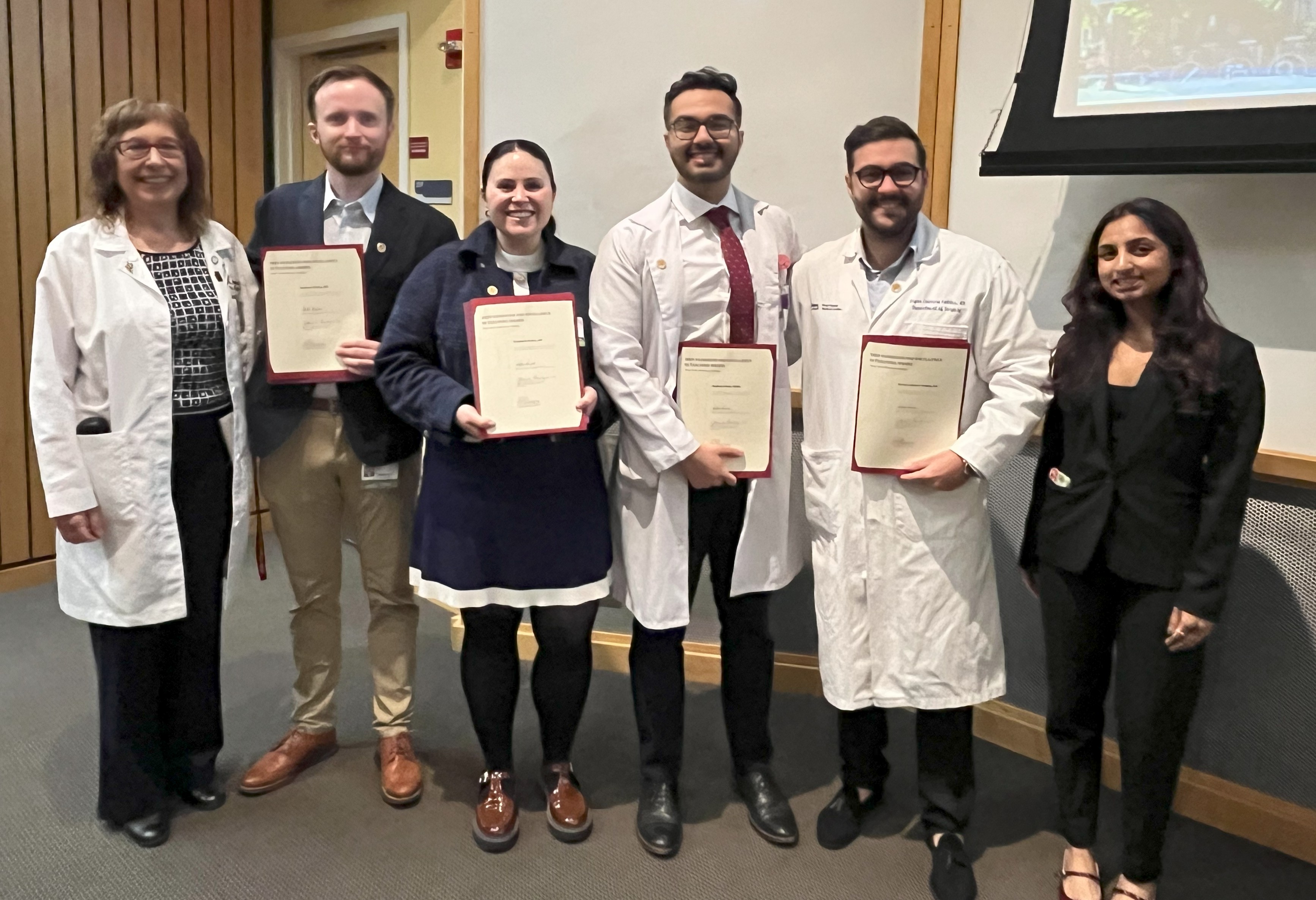
School of Medicine Class of 2027 Takes Pivotal Step from Classroom to Clinic
Student Clinician Ceremony Celebrates the Transition from Pre-Clinical to Clinical Medical School Years with a Focus on Compassion, Commitment, and Humanism

Members of the School of Medicine (SOM) Class of 2027 took their next steps to becoming physicians on April 11, marking their transition from the pre-clinical to clinical years of medical school during the annual Student Clinician Ceremony hosted by the New York Medical College (NYMC) Chapter of the Gold Humanism Honor Society (GHHS). During the ceremony, the students once again recited the oath that they crafted for their White Coat Ceremony when they embarked on their studies at NYMC.
“I am so happy to be here with you today to celebrate a moment of such significance in your education, your transition from the pre-clinical phase to the beginning of full-time doctoring,” said Jane Ponterio, M.D. ’81, dean of students. “This ceremony honors not only your academic accomplishments but also your humanistic spirit, and as you step into your clinical sites, remember that this journey is not just about acquiring skills. It's about building relationships, practicing empathy, and caring for your patients, your colleagues, and yourself.”
Ramachandra Reddy, M.D., assistant professor of medicine and associate program director of the Division of Hematology and Oncology, offered his own words of wisdom during the keynote address. “When I think back to my education, I think back to the life I had before third-year rotations and then the life I had after third-year rotations. The big difference is that while you're still studying, now it's all applicable to a real patient in front of you. It's not an abstract concept or an abstract question on a test. As an oncologist, I work with patients in their true time of need when they're quite sick and families are concerned. It's not only the knowledge you will gain in third year but also the skills, such as talking to patients, communicating well, and showing empathy that are so important.”
“You're not going to be perfect the first day you walk in, but the goal is to get better every day, and work on those skills every day, and if someone is struggling go and help them,” continued Dr. Reddy, who then went on to share a personal experience when he was a medical student in his first clerkship rotation. “One of my colleagues approached me after work one day and said, ‘I know you're having a really tough day. I'm here for you. I had a tough day a couple of days ago as well. We’re in this together, and we're going to get through this together.’ It took two minutes for him to say that, and I still remember that ten years later because it changed my perspective on the rest of my year. Third year is a tremendous opportunity. So, push yourself, expose yourself to things that make you uncomfortable, because you have to grow to learn these skills and to get through those tough moments.”
The GHHS Student Clinician Ceremony was also an opportunity to recognize six residents chosen by the SOM Class of 2026 with Humanism and Excellence in Teaching Awards for their exceptional teaching skills and commitment to the compassionate treatment of patients and families, students, and colleagues. This year’s honorees included:
Bryan Cabrera Valdes, M.D.
General Surgery Resident, Westchester Medical Center
Andrew Flatley, M.D. '23
Psychiatry Resident, Westchester Medical Center
Thomas Joyce, M.D.
Obstetrics and Gynecology Resident, Richmond University Medical Center
Subhan Khan, M.D.
Neurology Resident, Westchester Medical Center
Elizabeth Rubio, M.D.
Psychiatry Resident, Westchester Medical Center
Melissa Yuce, M.D.
Obstetrics and Gynecology Resident
The ceremony closed with remarks by Sarah Ampalloor, SOM Class of 2026, and GHHS co-president, “Today you cross a major threshold—transitioning from the classroom to clinic. You will now be caring for people—people with stories, fears, families, and hopes. In this next phase of medical school, you will experience some of the most rewarding moments. You will develop new skills, become more efficient, and truly become a part of your patient’s team. All of your years of pre-clinical studying have brought you to this moment, the best part, where you learn how to apply this knowledge to touch the lives of your patients.”
“As you step into the hospital, it becomes more important than ever to remember and embrace the power of humanism,” she advised. “You don't need to have all the answers to make a difference. Sometimes the most powerful thing you can offer is your presence—don’t underestimate the impact of just being there for someone through some of their most stressful times, holding someone’s hand during a blood draw, or reading a silly story to one of pediatric patients.”

